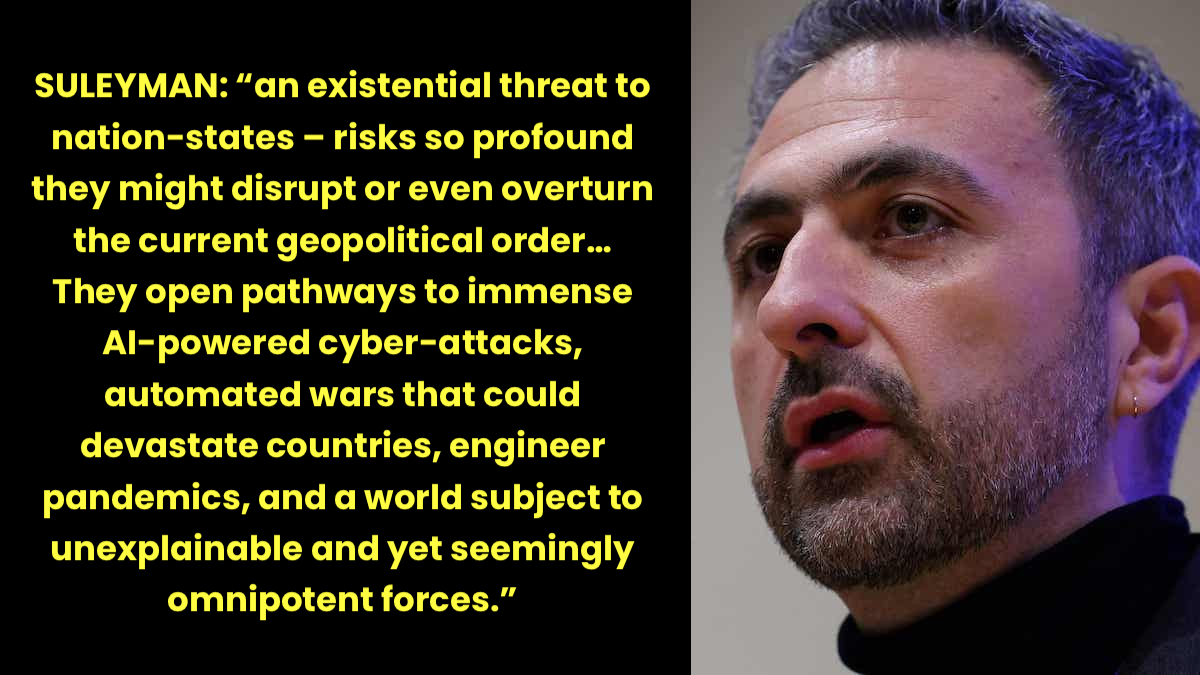THE GUARDIAN. Mustafa Suleyman: the new head of Microsoft AI with concerns about his trade.
The son of a Syrian taxi driver and an English nurse torn between AI’s potential and problems
Dan Milmo Global technology editor
Wed 20 Mar 2024 20.19 CET
Like many artificial intelligence pioneers, Mustafa Suleyman has expressed concerns about a technology he has played an important role in developing.
Speaking at the global AI safety summit last year, the 39-year-old Briton said there might have to be a pause in development towards the end of the decade. “I don’t rule it out. And I think that at some point over the next five years or so, we’re going to have to consider that question very seriously,” he said.
Suleyman will now be mulling that question as the head of a new AI division within Microsoft, a superpower in the field because of its multibillion-dollar investment in OpenAI, the developer of the ChatGPT chatbot. In his new role, he will have to balance his caution with the drive to innovate and commercialise.
Andrew Rogoyski, of the Institute for People-Centred AI at the University of Surrey, says Suleyman’s rationale for joining Microsoft is probably straightforward. “If you’re really concerned about the safety of AI, you can shout from the sidelines and hope that somebody listens to you, or you can be in the thick of it, influencing the critical decisions in arguably the world’s leading AI company,” he said.
But like other practitioners who warn about AI’s threats, Suleyman also extols its potential. His award-nominated book The Coming Wave says emerging technologies such as AI and synthetic biology will offer “extraordinary new medical advances and clean energy breakthroughs, creating not just new businesses but new industries and quality of life improvements in almost every imaginable area”.
The flipside is that they could “present an existential threat to nation-states – risks so profound they might disrupt or even overturn the current geopolitical order”. Suleyman added: “They open pathways to immense AI-powered cyber-attacks, automated wars that could devastate countries, engineer pandemics, and a world subject to unexplainable and yet seemingly omnipotent forces.”
Suleyman will be chief executive of a new organisation called Microsoft AI, focusing on the US company’s consumer products and research, which includes the Copilot chatbot and the new Bing browser that uses the technology underlying ChatGPT. Several senior employees at Suleyman’s Inflection AI startup – which is developing generative AI tools for companies – will also join the new Microsoft division.
Andrew Rogoyski, of the Institute for People-Centred AI at the University of Surrey, says Suleyman’s rationale for joining Microsoft is probably straightforward. “If you’re really concerned about the safety of AI, you can shout from the sidelines and hope that somebody listens to you, or you can be in the thick of it, influencing the critical decisions in arguably the world’s leading AI company,” he said.
But like other practitioners who warn about AI’s threats, Suleyman also extols its potential. His award-nominated book The Coming Wave says emerging technologies such as AI and synthetic biology will offer “extraordinary new medical advances and clean energy breakthroughs, creating not just new businesses but new industries and quality of life improvements in almost every imaginable area”.
The flipside is that they could “present an existential threat to nation-states – risks so profound they might disrupt or even overturn the current geopolitical order”. Suleyman added: “They open pathways to immense AI-powered cyber-attacks, automated wars that could devastate countries, engineer pandemics, and a world subject to unexplainable and yet seemingly omnipotent forces.”
Suleyman will be chief executive of a new organisation called Microsoft AI, focusing on the US company’s consumer products and research, which includes the Copilot chatbot and the new Bing browser that uses the technology underlying ChatGPT. Several senior employees at Suleyman’s Inflection AI startup – which is developing generative AI tools for companies – will also join the new Microsoft division.


